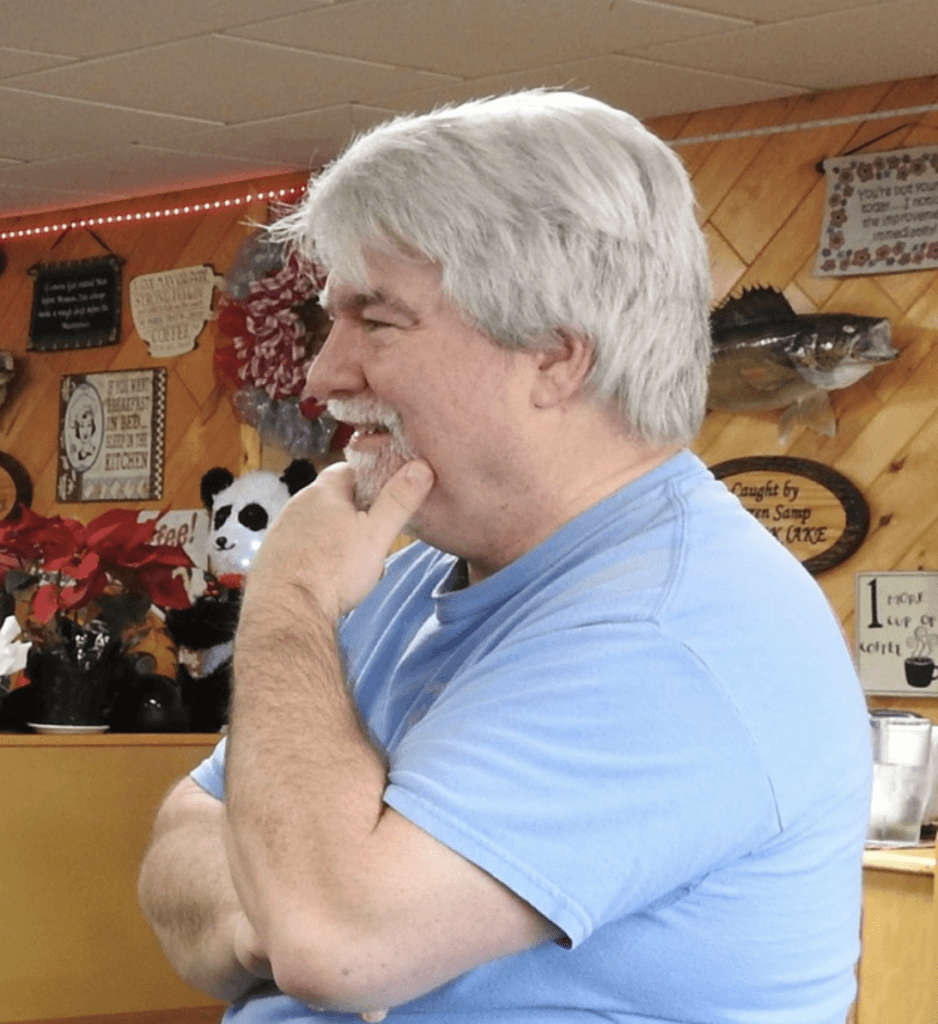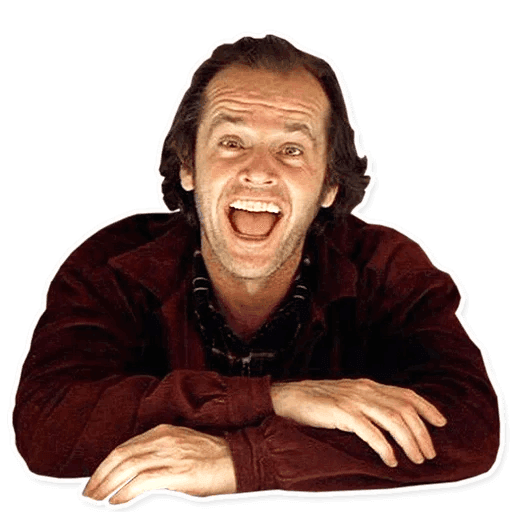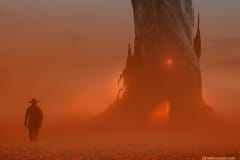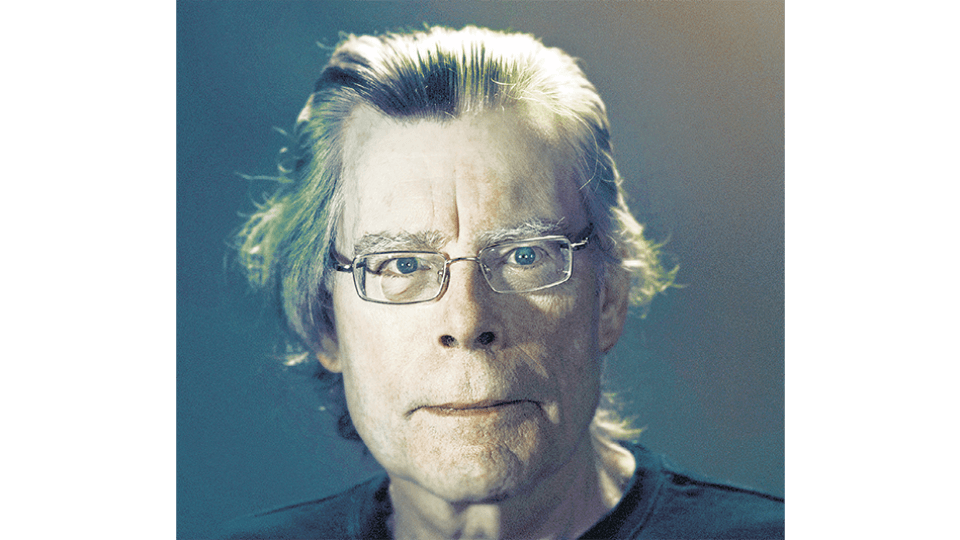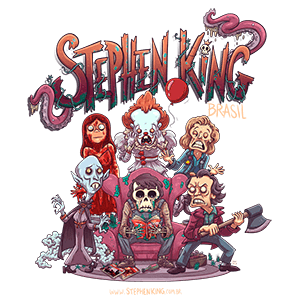Jeff Blankenship
NOTICE: The interview you are going to read contains some typos. This is because it’s a transcription of the video that is at the bottom of this post.
He is the filmmaker of The Last Rung On The Ladder Dollar Baby film.
SKSM: Could you start with telling me a little bit about yourself? Who are you and what do you do?
Jeff Blankenship: I grew up in Wisconsin, in the Midwest and spent a lot of time in the northern part of the state water skiing. I used to perform in water ski shows.
I’m involved in a lot of activities: Photography. Bicycling, Snow skiing, water skiing, Private pilot, golfing; things of that nature.
My educational background is I have a business degree in marketing with minor emphasis in computer science as well as a background in music.
I was a music major for a year and then moved on to more practical pursuits.
My career has taken me down more of a technical path, but I’ve always had a creative bent. I gravitate toward projects, whether it was something to do with photography or video.
I ran a video production company for about 10 or 15 years, but otherwise I’ve been in a tech Technical Support, customer service type roles for various companies.
The company I work for now is based in France.
The last two companies I’ve worked for are French based companies, and that’s what I’m currently doing as a profession.
SKSM: How did you become interested in film direction?
Jeff Blankenship: Well, again, as I said, I’ve always kind of had a creative bent.
I did some projects in college, and I had my video production business which involves direction of video production. When I was leaving that business to get into a more lucrative career, I applied as an editor to a film group, and when they brought me on, they felt I’d be a better director than editor. I directed my first film with them in 2010 and that was the start of this relationship with that production group.
SKSM: How do you collaborate with your cinematographer to achieve the desired visual style for your films?
Jeff Blankenship: It truly is a collaboration. Before I talk to the director of Photography, I will have a pretty good vision and I try to convey to the Director of Photography or cinematographer by imagery and by emotions and tone.
I use musical terms and tempo and feel rather than specific shot selection. I do use camera terms when I feel it’s appropriate or when I know exactly what I want for a shot, but I try to give a tone to the film 1st and at an emotional feel at a styling level and pacing to give them a sense of how I’m feeling about it and what this story is to me and what we’re trying to convey.
Then we’ll collaborate and speak more to specific shots and angles, etc. I tell the cinematographer my preferred style. For example, I like the use of practicals in the background. I like shallow depth of field in certain shots. I like compression. I like long lenses, so I do have a style that I will convey to them and then I defer to their expertise on any given shot. If they say, “well, I can do this, this might look better, this might work better” and then we truly collaborate at that point. I try to defer to their expertise on what’s going to create the vision I have for them. And that works really well.
SKSM: When did you make The Last rung on the Ladder? Can you tell me a little about the production? How much did it cost? How long did it take to film it?
Jeff Blankenship: It’s actually a very great story. We could do a whole interview just on that question.
Max Blaska came to me with the project. I’ve worked with Max in the past on smaller projects, mostly 48-hour competition type projects, and he told me I was recommended to me to Direct this, would you be interested?
I looked at it and the first thing I said to Max was “well, we need a producer and I have a producer mindset, but not the skill set.” I said, “look, I’ve got a lot of ideas, and I can tell you what needs to be done, but I’m not really a producer.
Time was running out on the project in terms of the contract and how long we were given to shoot the film, a producer on board, Kurt Krauss, and then we were off and running at that point and it was full steam ahead from there. So how long did it take in on a calendar?
It took a year easily to get going. We shot six or seven days in three four different cities starting in January and wrapping in May. A very aggressive shooting schedule,
The budget was tight. I would say, well under $20,000, maybe around $15,000.
The budget constrains a lot of things like how many days you can shoot and things of that nature. We did exceptionally well, I think within the time constraints and the budget.
We started post-production in June and wrapped at the end of the year. This was a very ambitious project, but once we got going it went very, very well, especially the shooting days.
SKSM: How come you picked The Last rung on the Ladder to develop into a movie? What is it in the story that you like so much?
Jeff Blankenship: Again, that was Max Blaska’s driving force. He coordinated with the King Group for the dollar baby project but I’m not certain what drove him to do that. I know he’s always been a Stephen King fan and he researched it (The Dollar Baby) and he came up with it the project. I had never heard of the program prior to this.
I don’t know if he picked that story or if that was something that was the only option for him, but it was Mac’s vision to do the project rewrite that story.
SKSM: How come you picked The Last Rung On The Ladder to develop into a movie? What is it in the story that you like so much?
Jeff Blankenship: What I really liked was Max’s passion for the story and the purpose that he wanted to convey awareness and education about mental illness issues; stigma and awareness.
He thought he could use this film to send his message in in a creative way, because there’s subtleties in the film about mental illness and other issues which are powerfully sent.
I really like the adaptation that Max and Karla presented to me. I then put my spin on it and really, really as we developed it, I just fell in love with the film, the concept and the characters, along with the honor and privilege to do a Stephen King based story. That motivation in itself was really a strong, a strong draw.
SKSM: For those who have read the original story, the ending of your film is surprising and unpredictable. Was it something you had talked with the scriptwriters? Did you want to bring that new vision to your film?
Jeff Blankenship: Yes, absolutely.
The one challenge I did have with the original screenplay was it felt a little bit linear to me, a little too chronological. I don’t know how much I want to give away for a spoiler, but the ending where the two scenes are intercut, in other words, 2 scenes happening simultaneously, was something that really meant a lot to me, and I think it brought a lot to the film in terms of suspense.
And you say unpredictability, I agree.
It brought an element of drama and terror to the film, which I think really added a lot. It was a little tricky because Max wanted to stay true to how Mr. King wrote the story in terms of that chronology, but I asked Max to trust me, and he did. Max ultimately said, “Oh, absolutely, that’s the way to do it” and that’s the way we did it.
SKSM: How do you manage such a large cast and crew to ensure everyone is working towards the same goal?
Jeff Blankenship: Well, really the beauty of it is having an incredibly talented cast and crew. I couldn’t have been more impressed with the people I worked with and frankly, I didn’t have to do much management because we had such good people.
My approach is to spend time with the department heads, and what the day looks like for the shooting schedule, and what scenes we are shooting.
We will set a time expectation and then I turn them loose to do their jobs. It really works; then work through either a line producer or my assistant director to manage issues. I get pretty locked in on the story and on what I’m looking at in the characters and what we’re what we’re trying to create. I let everybody do their jobs. If there’s an issue, then I will deal with it as needed. Those issues will come through the AD or some other department head.
But I’ll tell you what, this was an extremely smooth-running production. I had no issues at all with anything, and the cast was exceptional, and just incredible, incredible talent. We had some improv scenes that worked beautifully. Everybody was on board, and it was very coordinated and choreographed It was really a wonderful experience. And just really a pleasure to be on the set with all these guys.
SKSM: How did you find out that King sold the movie rights to some of his stories for just $1? Was it just a wild guess or did you know it before you sent him the check?
Jeff Blankenship: I did not know, that was all Max and his efforts. I don’t know what he did or how he handled that, and that those are all good questions for him.
SKSM: Was there any funny or special moment when you made the movie that you would like to tell me about?
Jeff Blankenship: So when we talked about how, how do you manage your crew, it works, so it works so smoothly that we really didn’t have anything that happens strangely. There was just one moment that got me laughing on the set. I’m usually pretty calm and even keeled on the set; pretty quiet, pretty focused on what I’m doing, but we had in one of the scenes we had some background talent that we had to give an early action to set to set them coming through the background set and we the AD call first action and then second action, and so on. We were getting ready for the shot and all of a sudden, out of the corner of my eye, I I saw what I think is background talent starting to walk and I said, “no, no, no, no, no, no, no.” Well, it wasn’t background telling at all. It was one of the crew getting into position or fixing something. It just struck me as funny that I’m kind of reprimanding the crew for doing their job thinking it was background talent walking through. I got the giggles on that one and it took me a few minutes to kind of compose myself because I embarrassed myself in that moment.
There were some special moments in the barn scenes because we were working with really young talent. I think Ruby is 8 years old and Tyler is 11 or 12 and we had them doing some challenging things; climbing very tall ladders and jumping into the hay. It was just enjoyable to work with them. There was nothing in particular other than Ruby was a bit of a character and she had some funny things to say.
She would get a little tired because she had to do a lot of climbing and jumping, but was real, a real trooper even though there were times I could see she was worn out or tired. It was a real joy to work with those young actors in the barn; it was a lot of fun, even though there were some elements of danger and, but we had great safety crew, and it was just really a lot of fun.
SKSM: Now the Dollar Baby program has been disbanded, do you think that a internet or dvd release could be possible?
Jeff Blankenship: I don’t know since this has happened very recently.
I’m guessing that maybe we’re the last one or the last of a couple that that got to do it. Maybe that gives them some special status.] but I don’t know.
Kurt and Max are the ones in communication with the king, and the King Group, so I don’t have a lot of first-hand knowledge of any of those talks or possibilities.
I think that the answer would be ‘no’ in terms of any kind of commercial gain or
revenue from the project, but I do not know specifically, but we do plan to screen the movie at festivals
SKSM: What “good or bad” reviews have you received on your film?
Jeff Blakenship: Everybody who’s seen it, (which is a limited audience) and heard nothing but good things about it, people are very happy about it, very excited about it.
People used terms like:
“It gave me the chills” and “wow, this is a real movie”; so, this is something to be very proud of. We’ve had really strong positive reviews.
I don’t know if you noticed this, but there are four references to other Stephen King stories in one fashion or another. Some of them were purely coincidental, which we found to be interesting. I’ll give you one example because it’s pretty obvious.
When we were getting ready to shoot the cafe scene, (which was a totally improvised scene), the hotel lobby had a mini book library for the guests. All the books were carefully tucked into their spaces in the bookshelf, except for one book; it was on its side, face up on the top of the stack, and it happened to be a Stephen King book. So I took that as a ‘message’; I took the book and that’s the book that the restaurant guest is reading at the diner.
SKSM: Do you plan to screen the movie at a particular festival?
Jeff Blankenship: We’re looking at a lot of local festivals here in Wisconsin, and across the States. So yes, we plan to do several and Max’s submitting around the country as well.
There’s another one in Iowa that we like. So yes, we plan to do several and Max’s submitting around the country specifically as well.
SKSM: Are you a Stephen King fan? If so, which are your favorite works and adaptations?
Jeff Blankenship: My favorite Stephen King film is probably “Shawshank Redemption”. Others are “The Green Mile”, “Misery”, “Stand by me” Those are my favorite ones.
My favorite book is ‘The Shining’. That’s the first Stephen King book I read. I also liked “The Bachman books”
The short stories I really liked; “The Long walk” fascinates me as a story. I really like the concept of it, and I’ve thought about that as a film.
SKSM: Did you have any personal contact with King during the making of the movie? Has he seen it (and if so, what did he think about it)?
Jeff Blankenship: I have not had any personal contact with King, and we don’t know yet if he has seen it. We did send it to them and him and we’re hoping he has seen it or we’ll see it and we’d love to hear from him about it.
Max and Kurt have those direct contacts, so I’ve not heard anything specific about that other than that.
SKSM: Do you have any plans for making more movies based on Stephen King’s stories? If you could pick -at least- one story to shoot, which one would it be and why?
Jeff Blankenship: It would be incredible to do another King story, for sure. I just learned the other day that Shawshank rights were sold for $1000. I couldn’t believe it. It was exciting when I thought about it; that it would be kind of fun to do this one “Last Rung” as a feature. It would also be interesting to do “The Long Walk” as a feature; but very challenging.
But The Long Walk interests me because it’s so introspective.
There are not a great deal of visual changes that you’ve got to work with. It’s essentially the same canvas over and over and over again for the 4 or 5 days of the ‘walk’. So to come up with a creative way to depict what this young boy is going through in his mind and the psychological dependency between these walkers, needing each other for support, and yet needing each other to die, is a fascinating concept. It would be an incredible challenge to try to convey that contradiction and dilemma,
SKSM: What are you working on nowadays?
Jeff Blankenship: I actually had two projects going on simultaneously, this one and another project.
So I’ve been very busy the last half of this year with two projects. I do have a project coming up that I’m working on. We’re in preproduction on that one
It’s a story about a little boy and his adventure in a park. It’s a very touching story.
SKSM: What one thing people would be surprised to know about you?
Jeff Blankenship: People are surprised when they learn that I was a ski show performer.
Some of the things I’ve done, like jumping out of airplanes and flying airplanes, I think people see me as a much more low key person and not that adventurous. Those kinds of things, I think people see me in a different way and when they hear learn that I’m involved in many activities, I think that surprises them.
SKSM: Thanks for taking the time to answer my questions. Is there anything you want to say to the fans that read this interview?
Jeff Blankenship: I’m glad they’re interested in in Stephen King projects. I hope they take an interest in this film. You know the mediums that will be available other than festivals and after that run you know how people see them.
We are extremely proud of this project and talent we had with us.
Little fun fact, if you didn’t know it, the building we shot the banquet scene or the awards ceremony scene is the same building they shot a major scene for “Public Enemies” and you may have known that, but the building’s kind of famous in and of itself.
Theproduction value and quality is very, very high in this film, so if you get an opportunity to see it, I encourage you to do so.
I don’t know what else to say about it other than I hope that this film can get a wide audience and that people get a chance to see it for all the work that went into and I’m so proud of my cast and crew for the way they made my job easier and embrace the visions I had, and especially the writers who trusted me with my tweaks and my vision.
And I think that was accomplished and I hope they all know how much I appreciate their talent and effort and commitment to the project.
So thank you very much, Oscar. And if you have any other questions or comments or need anything else from me, do not hesitate to reach out. I hope to meet you sometime.
So thank you again for taking the time to put this all together. Thanks.

